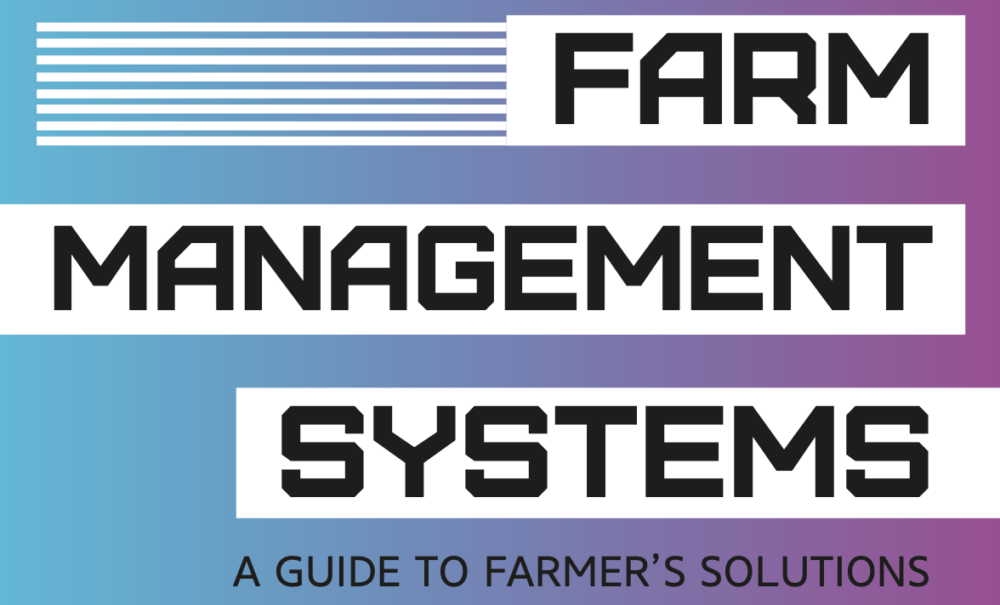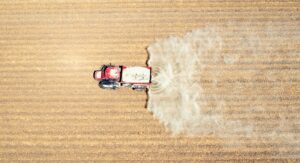Editor’s note: Yulia Poroshenko is founder, and Artem Rudko is key account manager, at AgroHub in Kyiv, Ukraine.
AgroHub uses data to help farmers make better, data-driven business decisions to increase revenue, reduce cost and risk, become and become more profitable. It creates a community of advanced farmers, facilitates the exchange of best practices between them, and enables data-driven decision making by blending analytics and ag expertise.
The views expressed in this guest article do not necessarily represent those of AFN.
Farmers only have so much influence over the world they work in.
Every farm has to carry out an identical set of tasks, perform typical functions needed for implementing a range of actions, and accumulate and distribute resources in order to boost their bottom line.
Producers cannot change pricing or volatility of the markets – but it is within their power to choose instruments that can improve their own efficiency.
Driven by scientific progress, the process of cultivation has undergone significant changes over the past half-century. The need for food security has attracted scientific and technological impetus to solve hunger and guarantee a safe existence in the future.
Agriculture has become one of the most science-based industries. Many issues relating to genetics, selection, and technical and chemical means of growing animals and plants for food were addressed during a relatively short historical period. Over the past decade, digitalization has contributed to the improvement of agricultural efficiency – and it keeps this process of innovation rolling.
The farmer must manage their land, stock up necessary resources for the production cycle, carry out operations using agricultural technologies, and sell products. In larger agribusiness settings, the functions of HR management and communication between territorial entities and the headquarters are added. Both the farmer and the larger agribusiness need planning, control, and strategy.
Related sectors are actively developing systems for automating management processes, but the abundance of choices may be confusing. To help, Agrohub — supported by AgFunder and Top Lead — has carried out research to create a guide to farm management systems (FMS). [Disclosure: AgFunder is the parent company of AFN.]
As ‘Farm Management Systems: A Guide to Farmers’ Solutions‘ suggests, digitalization has enabled the accumulation of big data – and working with data enables optimal solutions for further activities.
Using a small multifunctional sensor, Bayer‘s Climate FieldView allows you to collect data on soil, weeds, pests, and yields, and combine this with data from drones and satellite maps. The system then analyzes the data and transforms it into actionable insights for farmers.
This means that the efficiency of crop production can improve, since the application of fertilizers and agrochemical treatments becomes more precise, and crop seeds are diffused more accurately.
However, other crucial issues of the farmer’s activity remain disregarded: the purchase of seeds, fertilizers, agricultural chemicals and fuel, accounting, and the sale of grown produce.
If monitoring systems and analytics of agro-technical operations boost the growth of farm production efficiency, then complex FMS are designed to relieve the farmer from office work and equip them with off-the-shelf business solutions.
Full-cycle systems are developed either by large agricultural companies or scientific institutes, but IT companies are also experimenting in this area.
The FMS is a system that allows you to manage the production process from idea to execution control, based on farm-specific and external monitoring sources with the integration of financial management tools.
In the face of climate change and volatile commodity markets, the farmer must focus on growing produce and responding instantly to significant changes in conditions by automating accounting, control, procurement, and reporting processes.
The worldwide FMS market is now approaching $1.5 billion in value and is growing exponentially. There are recognized market leaders:
- Livestock breeders often use NAVfarm. Its “universal farm management software” is suitable for poultry, fish, livestock, and pig farm owners; dairy distribution companies; and other agricultural businesses.
- AgSquared helps farmers collect valuable information on their operations, so they can build a complete picture of farm productivity, profitability, and sustainability.
- More of a generalist but still popular with farmers, ERPNext is an open-source web application that helps small, medium, and corporate businesses manage their accounting, stock control, sales, purchases, manufacturing, projects, customer support, and websites.
Other popular systems include Farmlogs, FarmLogic, Agrivi, EasyFarm, Farmbrite, Croptracker, and AgroSense.
Agworld is the first collective farming solution that allows farmers, crop consultants, farm staff, precision farming specialists, and operations managers to work seamlessly. ExactFarming is an agricultural decision support system that uses data from field sensors, satellite images, and equipment to make farmers’ lives easier and their business more profitable.
The standard FMS includes modules and blocks that:
- Provide GPS monitoring, fuel control, land bank accounting, agricultural operations and waybills, field maps, distribution of goods and materials, and control of gas stations;
- Receive data from weather stations and warn about weather changes;
- Perform agro-scouting;
- Provide field reports on the phases of development;
- Conduct satellite monitoring;
- Predict the harvest;
- Carry out, and systematize soil analyzes;
- And control harvesting by in-house and rented companies, weighing, video monitoring, among other things.
The FMS market is formed mainly by developed agricultural countries. Naturally, Ukraine — with its gigantic agricultural-use areas, achievements in grain cultivation, and active progress in technology and agriculture — is a platform for the active implementation of FMS.
Over the past 15 years, Ukraine has worked its way from a country with a crumbling post-Soviet agricultural complex to the second position in the global hierarchy of grain exporters, overtaken only by the US at the end of the 2019–2020 marketing year.
Large holdings, as structures focused on innovation and efficiency, were the first ones to implement integrated management systems. They use off-the-shelf solutions like Agrivi, Cropio, Climate FieldView, Soft.Farm, and others that are 1C-compatible. In-house corporate systems are being developed by Astarta, Agroprosperis, and others.
While conducting our annual benchmarking research, Agrohub works hand in glove with the largest agricultural companies in Ukraine. At the same time, it constantly keeps an eye on the activities of small and medium-sized enterprises and clearly sees the problems agricultural producers are facing.
On the one hand, the temptation to entrust to the system processes like the procurement management, monitoring of agricultural operations, down to logistics and storage, is huge. On the other hand, the experience of using FMS is still insufficient, so the farmer is wary of digitalization.
Our FMS guide on complex management systems for agricultural production is an information-dense, visual document that presents the most popular FMS in Ukraine that are used on real farms. Tables and diagrams show the user the blocks and modules of the systems, their capabilities, and potential.
The guide is structured into separate sections and represents utilized FMS, international systems, and modular and corporate systems.
This overview allows the farmer to navigate through the digital world and choose the best solution for their farm. There is simply no alternative to the FMS; it is the only proven way to avoid unproductive costs and reduce the influence of the human factor on production processes. An important task is to choose what will work best on a particular farm.
By applying digital innovation, you can become more effective by the time you get to work tomorrow. Only efficiency in modern agriculture is considered to be a success.





